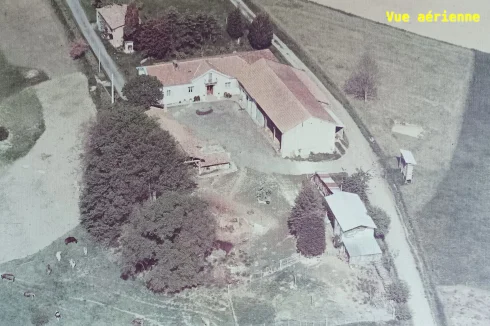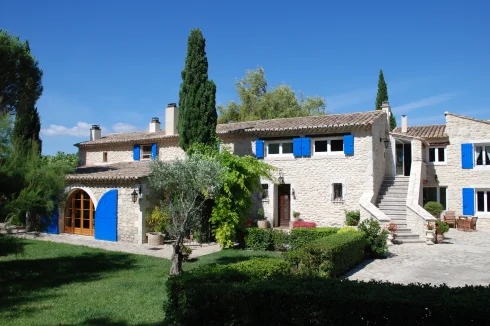French Government Suspends GM Crops
Friday 01 February 2008
Nevertheless, the decision is an historic one, which has simultaneously provoked the anger of the major cereal producers, and exaltation amongst organic producers and consumer groups.
In making the announcement President Sarkozy invoked the ‘principle of precaution’ in the French Constitution, following a provisional report from the Government advisory body on GM crops that ‘serious doubts’ remained about the safety of the genetically-modified maize crop, Monsanto 810.
The President stated that the decision put France ‘in the forefront of the debate about the environment’. Many consider he could hardly do otherwise, given the commitments the Government entered into recently following its Grennelle d’environment.
However, within hours of the announcement, a political row blew up, with 14 of the 15 scientists on the advisory group claiming that their evidence did not cast ‘serious doubt’, but simply that further research was required to answer a number of outstanding questions.
In particular, the experts considered that not enough research had been done on the long-term effects of GM crops to obtain a clear understanding of their of whether they were safe.
The President of the National Assembly (French Parliament), somewhat unusually intervened to also condemn the speed with which the announcement to cease cultivation of the crop was made.
Monsanto is the only GM crop that is authorized for use in the EU, and if a member state wishes to prevent its commercialism, they are required to invoke a safeguard procedure, which permits a member state to ban the commercial planting of a GM crop on the basis of any new scientific evidence concerning its safety.
Whilst the advisory group have underlined there are risks of contamination to non-GM crops, and that it is potentially toxic to insects, some commentators are doubtful that the group have brought any new evidence to the table that would be enough to secure confirmation of the ban by the EU.
In the past Austria, Hungary and Greece have invoked the safeguard procedure, only to have their claim turned down by the ruling EU scientific body. Nevertheless, as the EU Commission has never been able to persuade a majority of member states to invoke sanctions against the ban, it continues in these countries.
Indeed, following a complaint by the USA, the EU law itself has been brought into question, by a decision of the World Trade Organisation (WTO) in February 2006, which argued that the position of the EU was not compatible with the free trade regulations of the WTO.
Although there will now be no GM crops grown in France in 2008, the impact of the decision will be marginal. Last year, Monsanto 810 was planted on less than 1% of maize grown in France - 22,000 hectares out of a total of 2.8 million hectares of maize, that was used as animal feed. Most of the crop is grown in the Midi-Pyrénées and Aquitaine.
However, the decision does not necessarily mean the end of GM crops in France, for simultaneously with the decision the Government announced that it was releasing €45 million for biotechnological research, an eight fold increase in the budget over last year.
In announcing the release of funds, the French Minister of Research Valérie Pécresse stated, ‘The world will soon have a population of 9 billion inhabitants, and France needs to undertake agronomic research, in which it is a major world player. It is a question of our national independence.’
It may well be, therefore, that the French Government is playing a much longer game, banning the use of the American produced Monsanto GM seed until newer and 'safer' French GM seeds are developed.
Others consider that President Sarkozy made the decision with one eye to the forthcoming local elections in March, as a majority of French have consistently expressed their opposition to GM crops.
Indeed, even before the ink was dry on the announcement of the ban, the Government published their proposals for a law regulating the use of GM crops. The new law will set out a framework for the commercialisation of GM crops. This new law brings into effect an EU Directive, which France should have transposed into domestic legislation several years ago.
It is likely to be a lively debate in the French Parliament, for the decision taken by the President has sparked a furious reaction from many members of his party, concerned that the decision to ban the crops this year was taken under the pressure of a hunger strike by anti GM protester Jose Bové.
One of the central questions concerning GM crops is the how far the crop propagates, and the impact this would then have on other crops and species. In the past, it was generally thought the crop only propagated a few metres, but more recent research has established that it can spread over at least several kilometres.
The problem for the Government is that, whilst it has now conceded the need for more research to be undertaken into GM crops, this can only properly take place if anti-GM protesters halt their campaign of destruction of the fields where the crop is planted, something that is unlikely to occur.
By banning the planting of crops next year, the Government is probably hoping that it can be left alone by anti-GM protesters to undertake suitable trials. However, as the protesters consider that the mutual co-existence of GM and non-GM to be impossible, it is difficult to see how a compromise can be reached.
The ban on planting of GM crops does not affect the continued importation of Mon 810 from other countries, notably from Spain and the US, where it is widely grown.
Thank you for showing an interest in our News section.
Our News section is no longer being published although our catalogue of articles remains in place.
If you found our News useful, please have a look at France Insider, our subscription based News service with in-depth analysis, or our authoritative Guides to France.
If you require advice and assistance with the purchase of French property and moving to France, then take a look at the France Insider Property Clinic.





